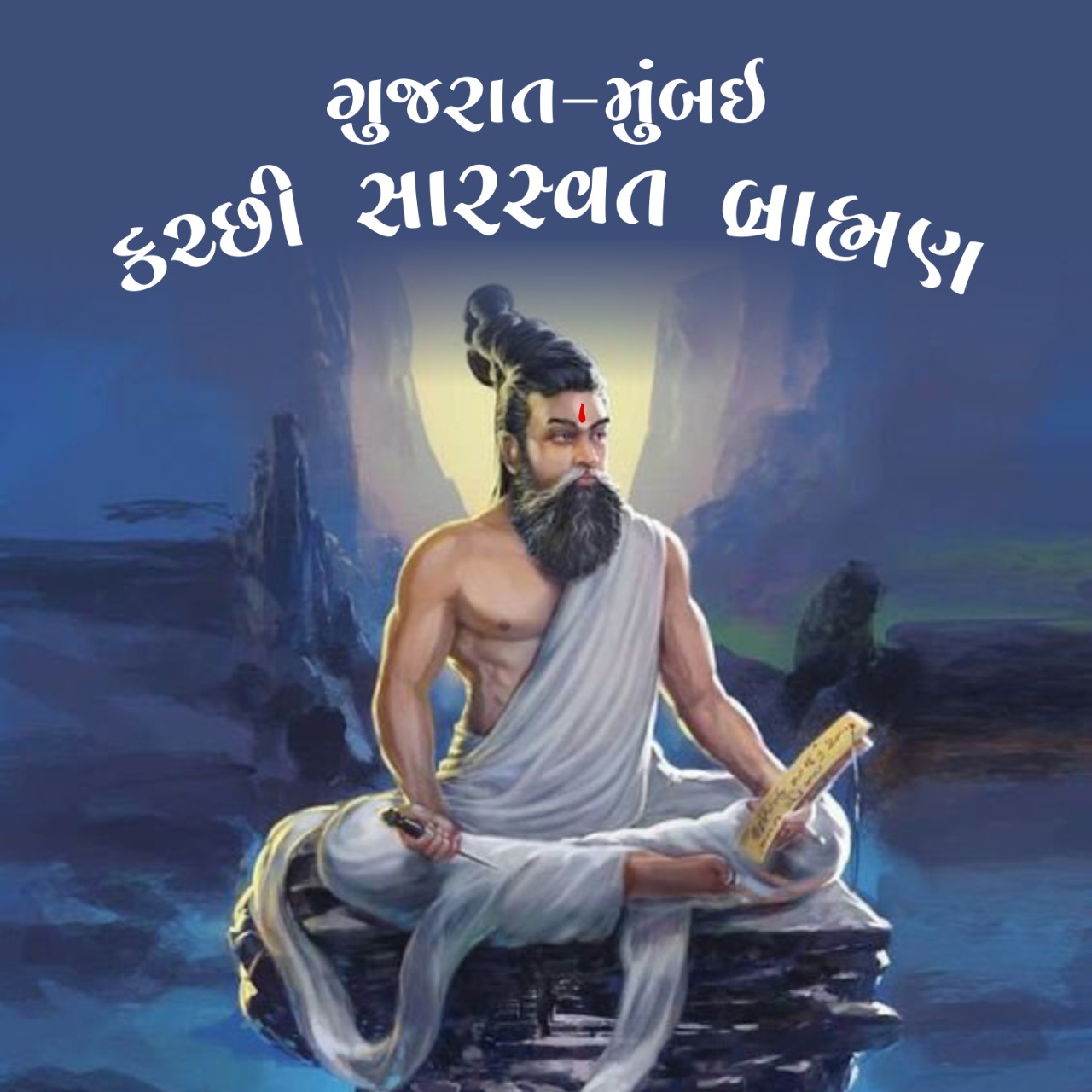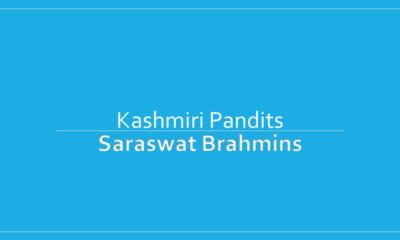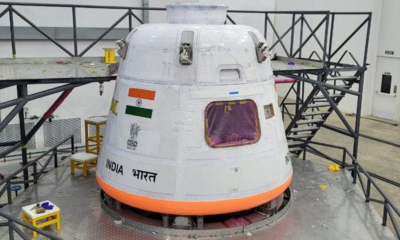The Saraswat Brahmins are a Hindu Brahmin subcaste, under which comes Kashmiri Pandits, Sindh Saraswats. Kutch (Kutchi Saraswats), Gujarat, Mumbai (Kutchi Saraswats), Rajasthan, Punjab. Konkan belt – GSBs, Rajapur-Rajapur Saraswats, Punjab-Punjabi Saraswats (Mohyals), Rajasthan-Rajasthani Saraswats, and Chitrapur Saraswats. This article is on history of Kutchi Saraswat Brahmins / Saraswat Brahmans who are living in Kutch to Mumbai from last 1000 years.
Saraswats Brahmins of India are considered among the oldest and most widespread communities all over India and still preserving their own culture.
Many of the prominent people that the world knows today have been people under this caste spread across different regions in India, from Kashmir to Konkan, Gujarat to Bihar and Bengal, and also Kanara and Kerala. They say the word Saraswat is derived from the Rigvedic Saraswati River. Also, ‘Saraswats’ have even been called children of the river Saraswati, which first flowed to North India to Narayan Sarovar, Lakhpat Taluka, in Kutch before the earthquake around 300 years ago.
Rich History of Saraswat Brahmins in India:
Saraswat Brahmins’ history is very rich, but this community’s actual fact never came out for several reasons. Saraswat Brahmins are also known as Hussaini brahmins. According to one story, Saraswat Brahmin tried to help Imam Hussain. They gave their level best to save Imam Hussain. Dutt’s of Saraswats gave seven young kids to save Imam Hussain. The place where they fought the war is said to be Hindiyah. Even today, in Afghanistan, they respect Dutts.
Saraswat Brahmin Dynasties:
Many will not agree that in the past, before 1000 years, Saraswats were the rulers of western parts of India. From Mohiyals to Chachas, all gave their lives to Great India to save the nation from Islam attacks. Chibbars, Chachas widely famous as Raja Dahir, gave the most challenging fight to Muhammad Bin Qasim. According to the sources, Chachas ruled from Sindh to Kashmir.
Many kings in Afghanistan and Kashmir have been Saraswat brahmins, like the ones we know as Kashmiri pandits today. The role of Saraswat Brahmins in Punjab from the start has been significant. Goa side brahmins too made their names by giving back their knowledge to the society. Today, many big names in India are from Saraswat Brahmin Community.
Saraswat Brahmins’ place in every dynasty, from Kshatriya Rajas and Maharajas to Mughals to British role was set at the top. Due to knowledge and excellent skills in all the fields, Sastras to Shastras Saraswats were and are the best. So in every era role of saraswats was extraordinary in every era.
The emergence of Kutchi Saraswats is said to have happened in the 13 Century. The migration of the Kutchi Saraswats happened due to varied reasons, one including the change in the flow of the Sindhu River (Indus River), which occurred after an earthquake. It is believed that during the Samma Dynasty and Argum Dynasty, a strong community consisting of people (Bhatia, Brahmkshatriya, Bhanushali, Luhana, and Saraswat) lived and flourished through their works. Saraswats have given services in the Military as Administrators, Raaj Gurus, farming, trading, import-export, and the like. They started migrating in the 13th Century, continuing until the 15th Century.
However, towards the end of the 15th Century, the rise of the Muslim communities and Sufi Saints led many Kutchi Saraswats to migrate to different parts of western India, like Kutch- Gujarat Mumbai, (Halai)Saurashtra in Gujarat, Rajasthan. The reasons behind this migration were not just the change of flow of the then Sindhu River, which started flowing through Karachi, but also the rise of other communities and the political exploitation of the Saraswat brahmin community.
Historians have said that Kutchi Saraswats have had significant prominence living in Narayan Sarovar around the 13th Century. Over the years, people from the community migrated across other villages of Kutch like lakhpat, Nakhatrana, Kothara, Bhuj, and other places in Kutch.
Also, history has shown that Kutchi Saraswat’s role as administrator in Gujarat was at its peak even at Mohammad Begada’s time. Diwan of Mahmud begada was Kutchi Saraswat (According to one book That Diwan name was Ruga Joshi).
Kutchi Sarsawats, Gujarat Saraswats, and Mumbai Saraswats:
There have been several success stories of Kutchi Saraswats Brahmins from across different fields and sectors. Kutchi Saraswat Brahmins in the past have been Raaj Jyotish, Sankaracharya Akhada Pramukhs, Diwans, Business people, High posts in Govt Jobs, and much more. Many today are making a big name in sports too.
Kutchi Saraswats average height:
If you compare Kutchi Saraswat Brahmins to normal Gujarat Brahmins, they will look different. Most of the Kutchi Saraswats heights are above 5,7. Their blood is from the hilly region of Kashmir to Sindh, so the height and looks of Kutchi Saraswat Brahmins differ from other Brahmins in Gujarat.
What Kutchi Saraswats, Gujarat Saraswat, and Mumbai Saraswats Brahmin eat:
Kutchi, Gujarati, and Mumbai Saraswats eat everyday vegetarian food. Some specific recipes are primarily seen in Saraswats Brahmins’ houses.
Maharaj and Maraj of Kutch:
Saraswats Brahmins are called Maharaj and Maraj’s in kutch. This word has been used in Sindh since the 7th Century of Raja Dahir time.
The population of Saraswat Brahmins in Kutch, Gujarat, and Mumbai:
Today more than 1lac Kutchi Saraswats are there in Kutch and Mumbai. All the Saraswats in Mumbai are from Kutch.
We will post more stories as a series of articles with facts shortly about the rich culture of Saraswat Brahmins.
Story Input: by Niranjan Dharadev (Raaj Jyotish), Ridhi Kush Pandya, Hari Krishna Khiera (Raaj Jyotish), Girish Bhai Joshi, Paresh Bhai Joshi, Geetaben N Joshi, Jyotiben P Joshi. Vijaybhai V Joshi.
































